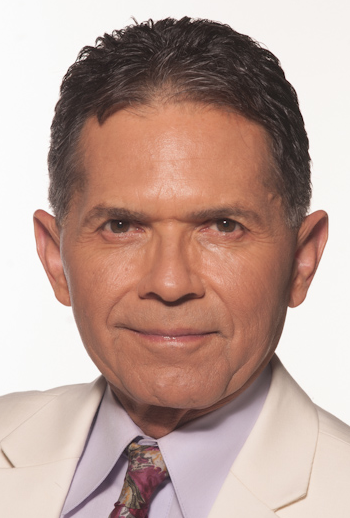Editor’s note: Amigos805 welcomes local guest columns, letters to the editor and other submissions from our readers. All opinions expressed in submitted material are those of the author and do not necessarily represent the viewpoint of Amigos805.
By David Magallanes • Guest contributor

David Magallanes
We all see it everywhere we go. Homelessness. It is ubiquitous, and not about to disappear anytime soon. To paraphrase Jesus himself, “The homeless we will always have with us.” The homeless population is surging in Los Angeles and Orange Counties—indeed all along the West Coast and throughout the country—but even in such paradisiacal locales as Ventura, Santa Barbara and even Hawaii, we see great numbers of homeless individuals seeking refuge, solace and at least some modicum of security that will keep the soul within the body.
During a recent visit to upscale Santa Barbara, where young people won’t ever be able to afford homes unless they come from families of means, I could see that the homeless are in continual danger as they dodge cars, especially at night, while they push their worldly possessions along the streets. These people are of all ages, but the older homeless population is growing somewhat exponentially, as reported by a recent Los Angeles Timesarticle* by Gale Holland (see link below).
I became more acutely aware of the fragility of the senior segment in our society when I slipped and fell—hard—on the bathroom floor on Thanksgiving Day last week. Fortunately, I weathered the fall with only slight bruises and a stubbed toe, but what if I lived paycheck-to-paycheck and my bones were weak and had broken, or if I had hit my head and suffered a concussion of some sort? What if my livelihood depended on my ability to function fully in order to support myself? Many of us are closer to homelessness than we care to think. Granted, some of the homeless could have made better choices and avoided their present circumstances, but for so many of them, an unexpected accident, illness, divorce or some other misfortune became the trigger that set the stage for a homeless existence.
I’m not suggesting that we give handouts to those who claim to be homeless. But I do think we need to become more informed and compassionate about this phenomenon that is rapidly becoming a major social failure in our country. We might even ask ourselves and begin to ponder the question, “What can I do to become a part of the solution?”
*Number of older adults who are homeless surges in L.A.
— David Magallanes is a writer, speaker and professor of mathematics.
***
Cayéndose en la Pobreza
Por David Magallanes • Columnista invitado
Todos lo vemos dondequiera que vayamos. La falta de vivienda. Está en todas partes, y no desaparecerá pronto. Parafraseando a Jesús mismo, “Los desamparados siempre tendremos con nosotros”. La población sin hogar está creciendo en los condados de Los Ángeles y Orange, de hecho a lo largo de toda la costa occidental de EE.UU. y en todo el país, pero incluso en lugares paradisíacos como Ventura, Santa Bárbara e incluso Hawái vemos un gran número de personas sin hogar que buscan refugio, consuelo y al menos un poco de seguridad que mantendrá al alma dentro del cuerpo.
Durante una visita reciente a un lugar cercano y exclusivo, Santa Bárbara, donde los jóvenes nunca podrán comprar casas a menos que provengan de familias de medios, pude ver que las personas desamparadas están en continuo peligro mientras esquivan los autos, especialmente de noche, mientras empujan sus posesiones a lo largo de las calles. Estas personas son de todas edades, pero la población de personas mayores sin hogar está creciendo de manera exponencial, según lo informado por un artículo reciente* del Los Angeles Timespor Gale Holland (véase el enlace abajo).
Me di cuenta de la fragilidad del segmento de personas mayores en nuestra sociedad cuando me resbalé y caí—con bastante fuerza—en el piso del baño el día de Acción de Gracias la semana pasada. Afortunadamente, soporté la caída con solo leves contusiones y un dedo del pie golpeado, pero ¿y si yo viviera de cheque a cheque y si mis huesos fueran débiles y se hubieran roto, o si me hubiera golpeado la cabeza y hubiera sufrido una conmoción cerebral de algún tipo? ¿Qué pasaría si mi sustento dependiera de mi capacidad para funcionar plenamente para poder mantenerme? Muchos de nosotros estamos más cerca de la falta de vivienda de lo que pensamos. Por supuesto, algunas de las personas sin hogar podrían haber tomado mejores decisiones y haber evitado sus circunstancias actuales, pero para muchas de ellas, un accidente inesperado, una enfermedad, un divorcio o alguna otra desgracia se convirtieron en el desencadenante que preparó el escenario para una existencia en las calles.
No estoy sugiriendo que le demos limosnas a aquellos que dicen no tener hogar. Pero sí creo que debemos estar más informados y ser más compasivos con respecto a este fenómeno que se está convirtiendo rápidamente en un gran fracaso social en nuestro país. Incluso podríamos reflexionar sobre la pregunta ¿Qué puedo hacer yo para convertirme en parte de la solución?
*Number of older adults who are homeless surges in L.A.
— David Magallanes es un escritor, orador y profesor de matemáticas.
Editor’s note: Amigos805 welcomes comments on stories appearing in Amigos805 and on issues impacting the community. Comments must relate directly to stories published in Amigos805, no spam please. We reserve the right to remove or edit comments. Full name, city required. Contact information (telephone, email) will not be published. Please send your comments directly to frank@amigos805.com
